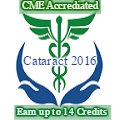
Stephen Russell
University of Iowa, USA
Title: A new complication of cataract surgery: Hemorrhagic occlusive retinal vasculitis
Biography
Biography: Stephen Russell
Abstract
Purpose: To review cases that represents phenotypic extremes of postoperative hemorrhagic occlusive retinal vasculitis (HORV) due to intracameral injection of vancomycin. Methods: Two cases of HORV were evaluated. Clinical evaluations included comprehensive ocular examination, testing and investigation for endogenous uveitis or non-HORV cause. Results: Case 1: A 65-year-old woman developed progressive visual loss over a 3 week period following uncomplicated cataract surgery with intracameral injection of 1 mg of vancomycin. Initially the patient was minimally symptomatic. Observed over the course of several weeks were transitory afferent pupillary defect and reductions in visual acuity, visual field, retinal hemorrhage and edema. She returned to 20/20 with minimal structural and visual sequella. Case 2: A 75-year-old male developed delayed onset, bilateral, severe sequential bilateral panuveitis and hemorrhagic occlusive vasculitis within 10 days of otherwise uncomplicated bilateral cataract surgeries with injections of 1 mg of intracameral vancomycin. Over the ensuing weeks he developed bilateral neovascular glaucoma requiring bilateral set on implants for IOP control. Conclusions: Presentation of postoperative hemorrhagic occlusive retinal vasculitis may range in severity and may require a high degree of suspicion for correct diagnosis. It is unclear whether current methods for detection (and treatment if necessary) of HORV is sufficient to assess its incidence.

